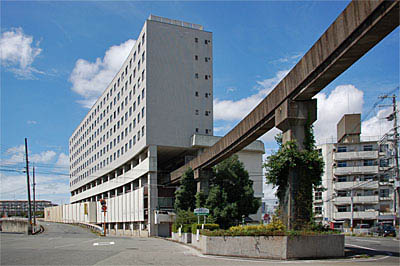MLIT Land White Paper 2013
On June 11, the Ministry of Land, Infrastructure, Transport and Tourism (MLIT) released the data from their 2013 White Paper on Land.
According to the report, land prices continue to fall across Japan although the rate of decline is shrinking. A greater number of survey locations saw an increase or stabilisation of land prices.Read more
Average apartment rent in May
According to Tokyo Kantei, the average monthly rent of an apartment in greater Tokyo in May increased by 0.1% from last month to 2,530 Yen per square meter. In Tokyo City, the average monthly rent in May was 2,979 Yen/sqm, up just 1 Yen from last month, but 2.2% higher than it was in May 2012. The average rent in Tokyo's 23 wards was 3,086 Yen/sqm, up 0.1% from last month and 2.2% from last year.Read more
New apartment prices in Tokyo up 4% in May
According to the Real Estate Economic Institute, the market for new condominiums in Tokyo is showing signs of improvement as sales numbers and prices increase in May.
A total of 4,967 new apartments were released for sale in May, up 49.2% from May 2012 and up 21.4% from the previous month. The contract rate (the number of new apartments sold as a percentage of the total number for sale) was 78.1%, which is above the 70% indicator of a good market. The contract rate for apartments in high-rise buildings above 20 stories was 84.6%.Read more
Government may introduce long-stay visas for wealthy foreigners
The Japanese Government is considering introducing a visa to allow wealthy foreigners to reside in Japan for a number of years.
The government wants to follow in the footsteps of other countries such as Thailand and Australia which offer long-stay visas. Australia recently introduced a significant investor visa which provides a four year visa to those who invest AUD 5 million in complying investments, such as state government bonds.Read more
Sumitomo announces new high-rises for Harumi

Sumitomo have announced the name of their high-rise condominium project in Harumi, Chuo-ku. 'Deux Tours Canal & Spa' will be two 51-storey residential towers with 1,450 apartments.
The 1 ~ 4-bedroom apartments will range in size from 44.67 to 123.77 sqm (480 ~ 1331 sqft). Sales are scheduled to begin at the end of November 2013. The buildings will be complete in September 2015, and ready to move-into by March 2016.Read more
Himeji's monorail building to be demolished
 The 10-storey Takaocho Apaato building in Himeji will soon be demolished. The building is jointly owned by the Urban Renaissance Agency (UR) and Himeji City.
The 10-storey Takaocho Apaato building in Himeji will soon be demolished. The building is jointly owned by the Urban Renaissance Agency (UR) and Himeji City.
It's unusual design was considered ground-breaking for its time. While it was under construction, the city purchased the first four floors in order to build a monorail platform for the Daisyogun Station on the 4th floor. The 3rd and 4th floors were opened up to allow the Himeji Municipal Monorail to pass through the building. As it turns out, the station wasn't used by many passengers as it was only 500 meters from the station at Himeji. It was subsequently closed in 1968. Read more
Central Tokyo apartment prices up 10.2% over 12 months
According to REINS, the number of second-hand apartment sales in Tokyo City in May were up 41% from May of last year. Sales of second-hand houses were up 6.6%.
A total of 1,530 second-hand apartments and 273 second-hand houses were sold in Tokyo last month. Read more
